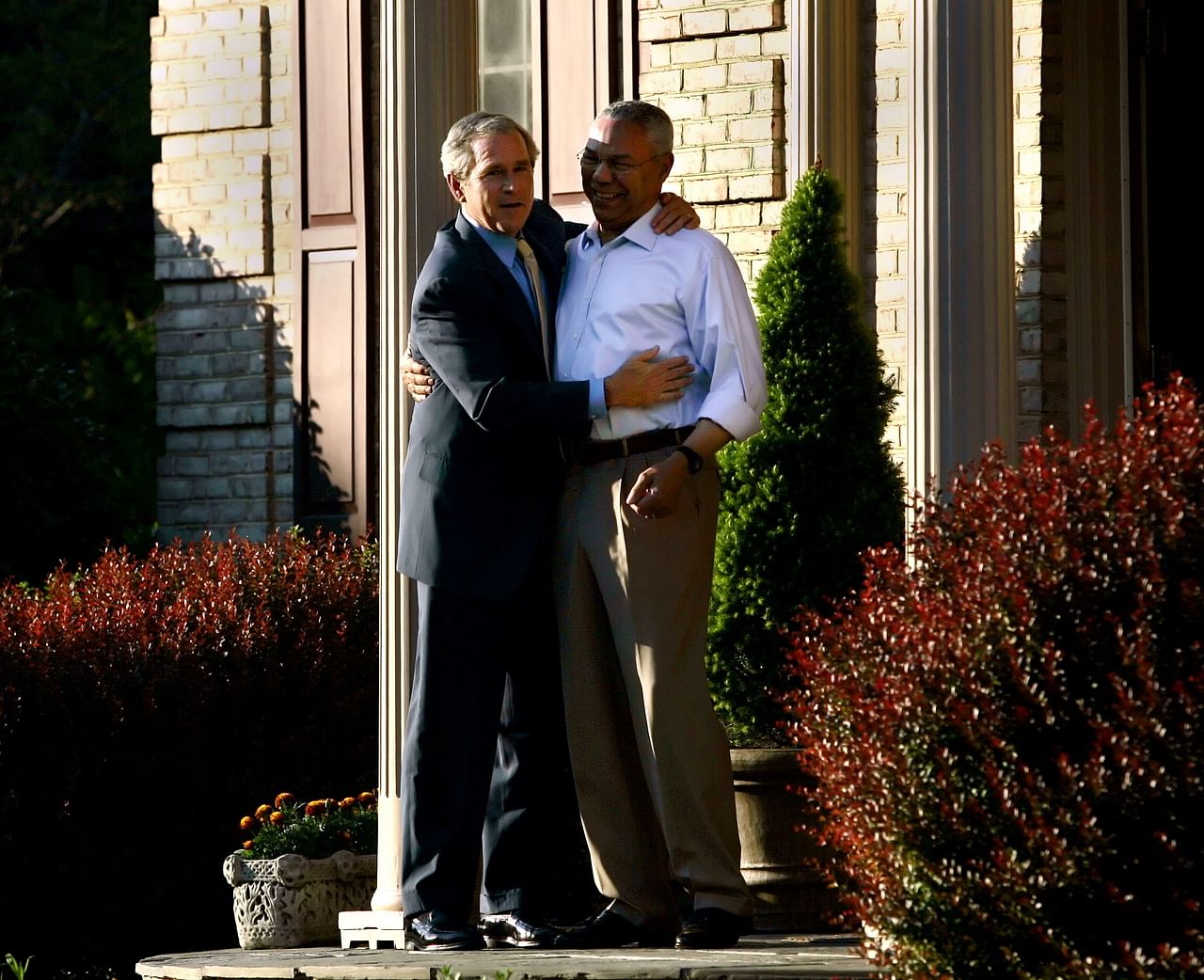Ex-US Secretary of State Colin Powell dies of Covid-19 complications


WASHINGTON - Mr Colin Powell, the first black US secretary of state and top military officer, died on Monday (Oct 18) at the age of 84 due to complications from Covid-19.
He was fully vaccinated, his family said in a statement on Facebook.
"We have lost a remarkable and loving husband, father, grandfather and a great American," his family said, thanking the staff of the Walter Reed National Military Medical Centre near Washington who treated Mr Powell, but providing few details about his illness.
Mr Powell was one of America's most prominent black figures for decades. He served three Republican presidents in senior posts and reached the top of the US military as it was regaining its vigour after the trauma of the Vietnam War.
He was the top US general when US-led forces drove Iraqi troops from Kuwait in 1991 and the chief US diplomat when Washington relied on erroneous intelligence about Iraqi weapons of mass destruction to justify its 2003 invasion of Iraq.
In a brief statement, the Powell family said he had died on Monday morning from Covid-19, had been fully vaccinated against the disease, and thanked the medical staff who cared for him.
The statement did not address such matters as which vaccine he received or whether he had gotten a booster shot, when he fell ill, when he may have been hospitalised and whether he may have had underlying health conditions that contributed to his illness.
US news organisations reported that Mr Powell had multiple myeloma, a cancer of plasma cells that reduces the body's ability to fight infection. Reuters could not immediately confirm the reports.
White House spokesperson Jen Psaki said hospitalisation and death are "extremely rare" among the fully vaccinated and said Mr Powell's death underscored that underlying health issues and other diseases can lead to greater risk from the virus.
"He had two very serious underlying conditions. And unfortunately, (vaccination) didn't work. God love him," US President Joe Biden told reporters at a White House event on education. He again implored all Americans to get vaccinated.
Mr Biden earlier praised Powell in a statement.
"Colin embodied the highest ideals of both warrior and diplomat," Biden, describing Powell as a "patriot of unmatched honour and dignity" and a man who "could drive his Corvette Stingray like nobody's business."
Condolences poured in from Democrats as well as Mr Powell's fellow Republicans, including former President George W. Bush.
"Many presidents relied on General Powell's counsel and experience," Mr Bush wrote in a statement. "He was such a favourite of presidents that he earned the Presidential Medal of Freedom - twice."

Former British prime minister Tony Blair recalled Mr Powell's self-deprecating humour, his kindness to his staff and his "willingness to work across partisan division in the interests of his country".
"Colin was a towering figure in American military and political leadership over many years, someone of immense capability and integrity, a hugely likeable and warm personality," Mr Blair said.
Mr Powell served as US national security adviser under president Ronald Reagan from 1987 to 1989.
As a four-star army general, he was chairman of the Joint Chiefs of Staff under President George H.W. Bush during the 1991 Gulf War in which US-led forces expelled Iraqi troops from neighbouring Kuwait.
A moderate Republican and a pragmatist, Mr Powell later served as secretary of state under president George W. Bush and publicly presented erroneous intelligence on which the US based its March 2003 invasion of Iraq in the inaccurate belief that it had weapons of mass destruction.
He considered running for president in 1996 but his wife Alma's worries about his safety helped him decide otherwise. In 2008, he broke with his party to endorse Democrat Barack Obama, the first black person elected to the White House.

Illustrating his deep misgivings about the evolution of the Republican Party as it moved to the right in recent years, Mr Powell endorsed Democrats Hillary Clinton in the 2016 presidential election and Joe Biden last year against Mr Donald Trump. Mr Powell called Mr Trump a liar who presented a danger to the US.
Mr Biden, who painted his 2020 presidential candidacy against Mr Trump as a fight for the United States' soul, thanked Mr Powell for bucking his Republican Party to back him.
[[nid:548874]]
"I am forever grateful for his support of my candidacy for president and for our shared battle for the soul of the nation," Mr Biden said.
Mr Powell will forever be associated with his controversial presentation on Feb 5, 2003, to the UN Security Council, making Mr Bush's case that Iraqi President Saddam Hussein constituted an imminent danger to the world because of its stockpiles of chemical and biological weapons.
He admitted later that the presentation was rife with inaccuracies and twisted intelligence provided by others in the Bush administration and represented "a blot" that will "always be a part of my record".
Richard Boucher, one of Powell's closest aides at the State Department, praised him for admitting the mistake.
"The honourable thing is to say 'I made a mistake.' Powell did that. He owned it. He owned his mistakes as much as his incredible successes," Boucher said.